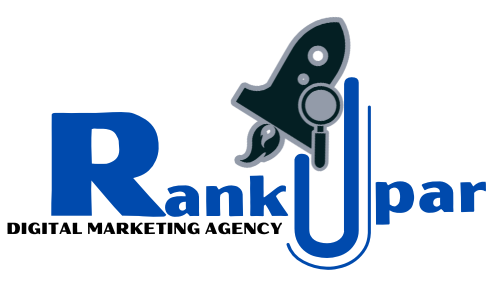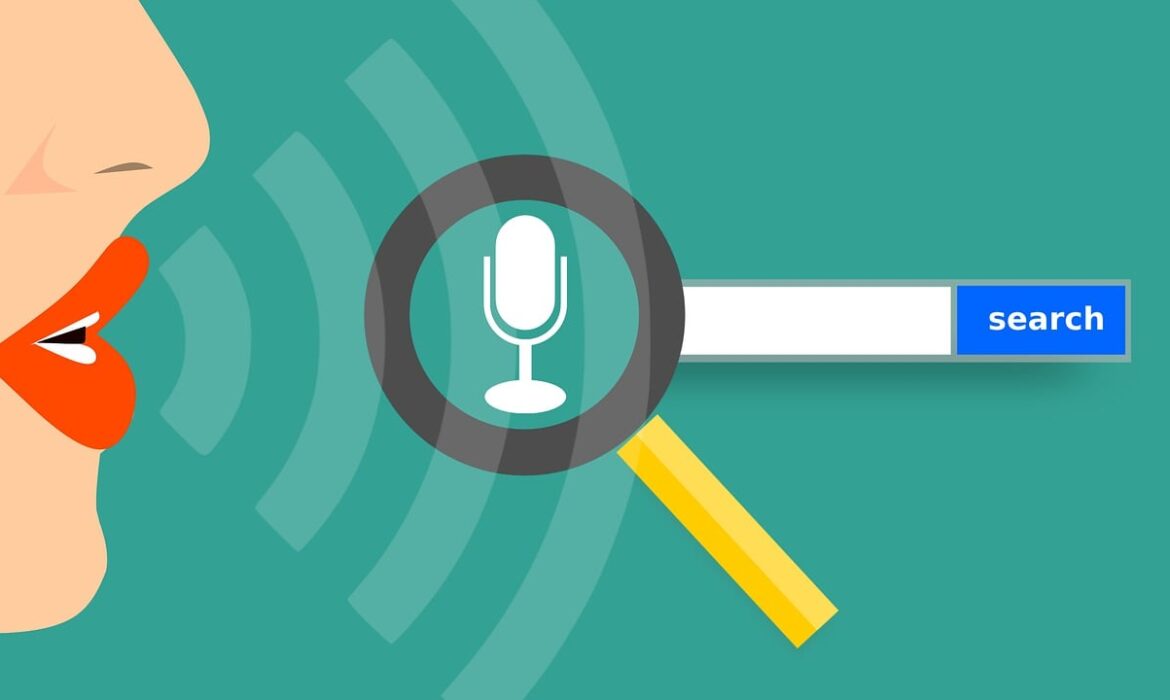+91 8828215493
Can AI Replace Human Intelligence? A Digital Marketing Perspective

INTRODUCTION
Artificial Intelligence (AI) is transforming industries across the globe, including digital marketing. From SEO and PPC to Meta Ads and website development services, AI-powered tools are making processes more efficient. However, can AI truly replace human intelligence, especially in creative and strategic domains like digital marketing? Let’s explore how AI impacts digital marketing services and why human expertise remains irreplaceable.
AI in Digital Marketing: Enhancing, Not Replacing
AI has revolutionized digital marketing by automating tasks, improving targeting, and optimizing performance. In cities like Mumbai, Thane, and Navi Mumbai, businesses rely on AI-driven solutions to improve their marketing strategies. Here’s how AI contributes to different aspects of digital marketing:
The Role of AI in Digital Marketing
1. Search Engine Optimization (SEO)
SEO is a crucial component of digital marketing that AI has significantly impacted. AI-powered tools like SEMrush, Ahrefs, and Google’s RankBrain help digital marketers analyze data, track search trends, and optimize content accordingly. Businesses in Mumbai, Thane, and Navi Mumbai use AI to identify high-ranking keywords, analyze competition, and enhance content strategies.
AI-Driven SEO Benefits:
- Automated Keyword Research: AI quickly identifies relevant keywords for specific industries.
- Content Optimization: AI tools suggest improvements in readability, keyword density, and overall SEO ranking.
- Competitor Analysis: AI algorithms track competitor websites to analyze their strategies and performance.
However, despite AI’s efficiency, SEO is not just about data analysis. Human expertise is necessary for crafting engaging, authoritative, and brand-specific content that resonates with the target audience. The question remains: Can AI replace human intelligence in digital marketing? The answer is no—it can only assist, not replace, human strategy and creativity.
2. Pay-Per-Click (PPC) Advertising
PPC campaigns, including Google Ads and Meta Ads, have become more effective due to AI integration. AI optimizes bid strategies, predicts conversion rates, and automates ad placements to maximize ROI. Marketers in Mumbai, Thane, and Navi Mumbai leverage AI to improve their PPC strategies and drive better traffic.
AI’s Role in PPC:
- Smart Bidding: AI adjusts bids in real time to increase conversion rates.
- Audience Targeting: AI analyzes user behavior to create highly personalized ad campaigns.
- Performance Monitoring: AI tracks key performance indicators (KPIs) and suggests optimizations.
While AI optimizes PPC campaigns, human involvement is crucial for writing compelling ad copy, analyzing user intent, and making data-driven adjustments for long-term success. Thus, Can AI replace human intelligence in PPC marketing? Not entirely, as human expertise is needed for effective strategy and brand communication.
3. Meta Ads and Social Media Marketing
AI has transformed social media marketing, particularly with Meta Ads, by automating audience targeting and content recommendations. Businesses in Mumbai, Thane, and Navi Mumbai rely on AI to enhance their social media presence and drive engagement.
AI in Social Media Marketing:
- Automated Ad Placements: AI selects the best-performing placements for maximum visibility.
- Sentiment Analysis: AI assesses audience reactions to refine content strategies.
- Chatbots & Customer Interaction: AI-powered chatbots handle customer queries efficiently.
Despite AI’s efficiency, human creativity is essential in social media marketing. Crafting engaging stories, building brand narratives, and responding to customer concerns require emotional intelligence that AI lacks. Can AI replace human intelligence in social media marketing? No—while it enhances marketing efficiency, AI cannot replace the human touch that fosters authentic engagement.
4. Website Development Services
AI has influenced website development services by automating design elements, analyzing user behavior, and suggesting layout improvements. Businesses in Mumbai, Thane, and Navi Mumbai use AI-driven website builders to create quick and efficient web solutions.
AI’s Contribution to Website Development:
- Automated Design Tools: AI suggests templates based on industry trends.
- User Behavior Analysis: AI tracks visitor interactions to enhance UI/UX.
- SEO-Optimized Structures: AI generates SEO-friendly layouts for better ranking.
However, while AI provides templates and automation, website development services still require human designers and developers to ensure uniqueness, creativity, and brand-specific customization.
Why AI Can’t Replace Human Intelligence in Digital Marketing
Despite AI’s capabilities, it cannot replace human intelligence in digital marketing due to the following factors:
4. Website Development Services
1. Creativity & Content Creation
AI can generate articles, social media posts, and ad copies, but it lacks the originality, context, and emotional depth that human writers provide. Digital marketing thrives on creative storytelling and persuasive communication, which AI cannot replicate entirely.
2. Strategic Decision-Making
AI can process data and suggest strategies, but human experts interpret insights, adjust campaigns based on industry trends, and create personalized marketing plans that align with business goals.
3. Emotional Intelligence & Customer Interaction
Building customer relationships requires emotional intelligence. AI chatbots can assist in customer support, but they lack empathy, understanding, and the ability to form meaningful connections with clients.
4. Brand Identity & Unique Voice
Every business in Mumbai, Thane, and Navi Mumbai has a unique brand identity that AI cannot fully replicate. Human digital marketers understand brand tone, culture, and audience preferences, ensuring consistency in communication.
The Future of AI in Digital Marketing
AI will continue to play a vital role in digital marketing, but it will work alongside human experts rather than replace them. Businesses must leverage AI for data-driven decisions while relying on human creativity, strategy, and emotional intelligence for long-term success.
AI-Human Collaboration in Digital Marketing
- AI for Automation & Data Analysis: AI enhances efficiency and provides insights.
- Humans for Creativity & Strategy: Human intelligence crafts compelling content and strategic campaigns.
- Hybrid Approach for Optimal Results: Combining AI and human expertise ensures higher engagement and ROI.
Conclusion: AI as a Tool, Not a Replacement
AI is a powerful tool that enhances SEO, PPC, Meta Ads, and website development services, but it cannot replace human intelligence in digital marketing. At Rankupar, we combine AI-driven strategies with expert insights to deliver outstanding digital marketing solutions in Mumbai, Thane, and Navi Mumbai. Learn more about our SEO services and PPC marketing solutions. If you’re looking for result-oriented marketing services, contact us today!
Digital Products in Demand? [2025 Edition]

What Digital Products Are in Demand? [2025 Edition]
Introduction
In today’s digital age, selling digital products has become one of the most profitable and scalable business models. Entrepreneurs, marketers, and content creators are capitalizing on the growing demand for digital solutions that provide value, convenience, and accessibility. Whether you’re a digital marketer, freelancer, or small business owner, understanding top digital products in demand can help you create and sell high-value products that generate passive income.
In this guide, we will explore the most in-demand digital products in 2025 and how you can leverage them to grow your online business. This blog is optimized with relevant keywords like high-demand digital products, best digital products to sell, and profitable digital products to help boost your website’s ranking.
Want to start selling digital products today? Check out our exclusive digital products on Rankupar Digital Product Store and start earning passive income.
Why Digital Products Are in Demand
Digital products have gained immense popularity due to their low production cost, ease of distribution, and unlimited scalability. Unlike physical products, digital products can be created once and sold repeatedly without the need for inventory or shipping. Here are some key reasons why digital products continue to be a hot market:
- High Profit Margins – No manufacturing costs, storage, or shipping expenses.
- Scalability – Sell to a global audience without limitations.
- Passive Income Potential – Once created, digital products can generate sales with minimal effort.
- Instant Delivery – Customers get immediate access, enhancing user experience.
- Ever-Growing Demand – As more people shift online, the demand for digital solutions increases.
Now, let’s explore the top digital products that are in demand right now.
Top 10 High-Demand Digital Products to Sell in 2025
1. Online Courses & E-Learning Materials
With the rapid rise of e-learning platforms, the demand for online courses is skyrocketing. People are eager to acquire new skills, making this a lucrative opportunity for experts in any field.
Profitable Niches for Online Courses:
- Digital Marketing (SEO, PPC, Social Media Marketing)
- Graphic Design & UI/UX
- Business & Entrepreneurship
- Health & Fitness Coaching
- Coding & Web Development
Best Platforms to Sell Courses:
- Udemy
- Teachable
- Thinkific
- Gumroad
SEO Tip: Optimize course titles and descriptions with keywords like “best online course for digital marketing” to attract more learners.
2. Digital Templates & Printables
Templates help save time and increase productivity, making them one of the most profitable digital products to sell. Business owners, students, and freelancers are constantly looking for ready-made templates to streamline their work.
Popular Digital Templates to Sell:
- Social Media Templates (Canva, Instagram, Pinterest, LinkedIn)
- Business Proposal & Resume Templates
- Presentation Templates (PowerPoint, Keynote)
- Invoice & Budget Planning Sheets
- Wedding & Event Planning Printables
Grab ready-to-use templates from our Rankupar Digital Product Store.
External Resource: Learn more about creating profitable digital products on HubSpot.
3. Ebooks & Digital Guides
Templates help save time and increase productivity, making them one of the most profitable digital products to sell. Business owners, students, and freelancers are constantly looking for ready-made templates to streamline their work.
Popular Digital Templates to Sell:
- Social Media Templates (Canva, Instagram, Pinterest, LinkedIn)
- Business Proposal & Resume Templates
- Presentation Templates (PowerPoint, Keynote)
- Invoice & Budget Planning Sheets
- Wedding & Event Planning Printables
SEO Tip: Optimize your listing with keywords like “best Canva templates for social media” to rank higher in search results.
3. Ebooks & Digital Guides
Ebooks remain one of the most profitable digital products because they provide knowledge in an easily digestible format. If you’re an expert in a specific niche, creating an ebook can establish you as an authority while generating passive income.
Popular Ebook Topics:
- SEO & Digital Marketing Strategies
- Freelancing & Remote Work Guides
- Self-Improvement & Productivity Hacks
- Investment & Personal Finance
- Healthy Lifestyle & Nutrition
- Where to Sell Ebooks?
- Amazon Kindle Direct Publishing (KDP)
- Gumroad
- Payhip
- Your Own Website
SEO Tip: Use long-tail keywords like “best digital marketing ebook for beginners” to attract organic traffic.
4. Membership Sites & Subscription-Based Content
Subscription-based content is a powerful way to generate recurring revenue. Instead of selling one-time products, you can offer exclusive premium content that users pay for monthly or annually.
Ideas for Membership-Based Digital Products:
- SEO & Business Growth Communities
- Private Digital Marketing Mastermind Groups
- Exclusive Podcast Episodes
- VIP Content Libraries (Templates, Courses, PDFs)
Best Platforms to Set Up Membership Sites:
- Patreon
- Kajabi
- MemberPress (WordPress Plugin)
- Substack (for Paid Newsletters)
SEO Tip: Create blog content targeting “best membership sites for online courses” to drive potential subscribers.
5. Software & Mobile Apps
The demand for custom software solutions and mobile apps is skyrocketing. Entrepreneurs and startups are looking for SaaS (Software as a Service) solutions that can automate their workflows.
Examples of Profitable Software Products:
- SEO & Keyword Research Tools
- Social Media Scheduling Tools
- AI Writing & Content Generation Software
- Online Course Platforms
- Finance & Budgeting Apps
SEO Tip: Target queries like “best SEO tools for small businesses” to increase search visibility.
How to Sell Digital Products Successfully
Selling digital products is competitive, but strategic marketing and SEO optimization can help you stand out. Follow these tips for success:
- Leverage Content Marketing – Write blogs, create YouTube videos, and use social media to drive organic traffic.
- Optimize Product Listings – Use SEO-friendly product titles, descriptions, and images.
- Use Lead Magnets – Offer free ebooks or templates in exchange for email signups.
- Leverage Paid Ads – Run targeted ads on Facebook, Instagram, and Google.
- Build a Personal Brand – Showcase testimonials, case studies, and success stories to build trust.
SEO Tip: Create blog posts around “how to sell digital products online” to attract potential buyers.
Conclusion
The digital product market is expanding, offering endless opportunities for marketers, entrepreneurs, and content creators. Whether you choose to sell online courses, templates, ebooks, or software, the key to success is understanding market demand and implementing strong SEO strategies.
If you’re looking to start selling digital products, now is the perfect time! Which digital product will you create first? Let us know in the comments! 🚀
Want help growing your digital business? Contact us today for expert digital marketing strategies!
Voice Search Optimization
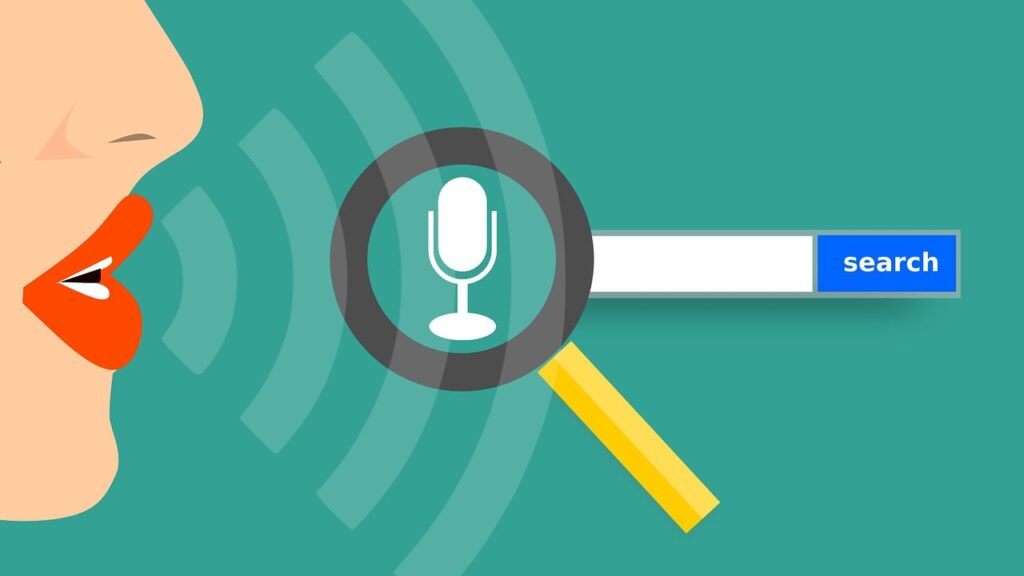
Voice Search Optimization: The Future of SEO
Voice search is transforming the way users interact with search engines. With the rise of smart speakers and voice assistants like Alexa, Google Assistant, and Siri, optimizing for voice search has become crucial for digital marketers and SEO professionals. This detailed guide explores the significance of voice search, effective optimization strategies, and its impact on the future of SEO.
1. Understanding Voice Search and Its Growth
Voice search allows users to speak their queries instead of typing them. This technology relies on Natural Language Processing (NLP) to understand conversational language. Recent studies show that over 50% of searches are voice-based, driven by the convenience of hands-free searching and the increasing accuracy of voice recognition systems.
Why Is Voice Search Growing Rapidly?
- Convenience and Speed: Speaking is faster than typing, making voice search a preferred option for mobile users.
- Smart Devices Proliferation: The widespread adoption of smart speakers and voice assistants.
Conversational Queries: Voice searches are more conversational and longer than text queries, affecting SEO strategies.
2. Impact of Voice Search on SEO
Voice search changes how users phrase their queries. Instead of short, keyword-based searches, users ask questions in a natural, conversational tone. For example, instead of typing “best pizza NYC,” they might say, “Where can I find the best pizza in New York City?”
Key Impacts on SEO:
- Long-Tail Keywords: Increased use of long-tail keywords and natural language.
- Question-Based Queries: Queries often start with “who,” “what,” “where,” “when,” and “how.”
- Local Search Optimization: “Near me” searches are more common in voice search.
3. Voice Search Optimization Strategies
To succeed in voice SEO, businesses need to adapt their strategies to match conversational queries and user intent.
a. Optimize for Conversational Keywords
- Focus on long-tail keywords that reflect how people naturally speak.
- Include question phrases relevant to your business niche.
b. Featured Snippets and Position Zero
- Structure content to answer common questions concisely to rank as a featured snippet.
- Use bullet points and numbered lists for better chances of appearing in position zero.
c. Local SEO for Voice Search
- Claim and optimize your Google My Business listing.
- Use local keywords, especially with “near me” phrases.
d. Improve Website Loading Speed and Mobile Usability
- Ensure fast page load times as voice search is commonly used on mobile devices.
- Make your website mobile-friendly and easy to navigate.
4. Content Creation for Voice Search
Creating content that matches the conversational style of voice search is essential.
a. FAQ Pages
- Develop comprehensive FAQ pages that address common user questions.
- Use natural language and provide concise answers.
b. Structured Data Markup
- Implement schema markup to help search engines understand your content better.
- This increases the chances of being featured in rich snippets.
5. Future Trends in Voice Search and SEO
The future of voice search will be shaped by advancements in AI and NLP technologies.
a. Multimodal Search Experience
- Combining voice and visual search for a seamless user experience.
b. Voice Commerce (V-Commerce)
- The rise of shopping through voice commands, impacting e-commerce SEO.
c. Integration with IoT Devices
- Increased use of voice search across smart home devices and connected appliances.
6. Case Studies and Success Stories
- Example of a local restaurant increasing foot traffic using voice-optimized local SEO.
- Case study of an e-commerce brand improving sales through voice search optimization.
7. Actionable Tips for Implementing Voice Search Optimization
- Research and target long-tail conversational keywords.
- Optimize for local SEO to capture “near me” searches.
- Enhance website speed and mobile usability.
Create FAQ content that answers common voice search queries.
Conclusion: Embracing the Future of SEO with Voice Search
Voice search is not just a trend but the future of SEO. By optimizing for conversational queries, focusing on local SEO, and leveraging structured data, businesses can stay ahead of the competition. Embracing voice search optimization now will ensure better visibility, user engagement, and search engine rankings in the evolving digital landscape.
Voice search is here to stay—adapt your SEO strategy today to stay relevant in the voice-first world.
Looking to stay ahead in the digital landscape? Our SEO services are designed to optimize your online presence, including voice search strategies that cater to modern user behavior. Discover how voice search is changing SEO by exploring our comprehensive blog posts. Stay informed and ensure your business remains visible and relevant.
Using AI Tools to Improve On-Page SEO
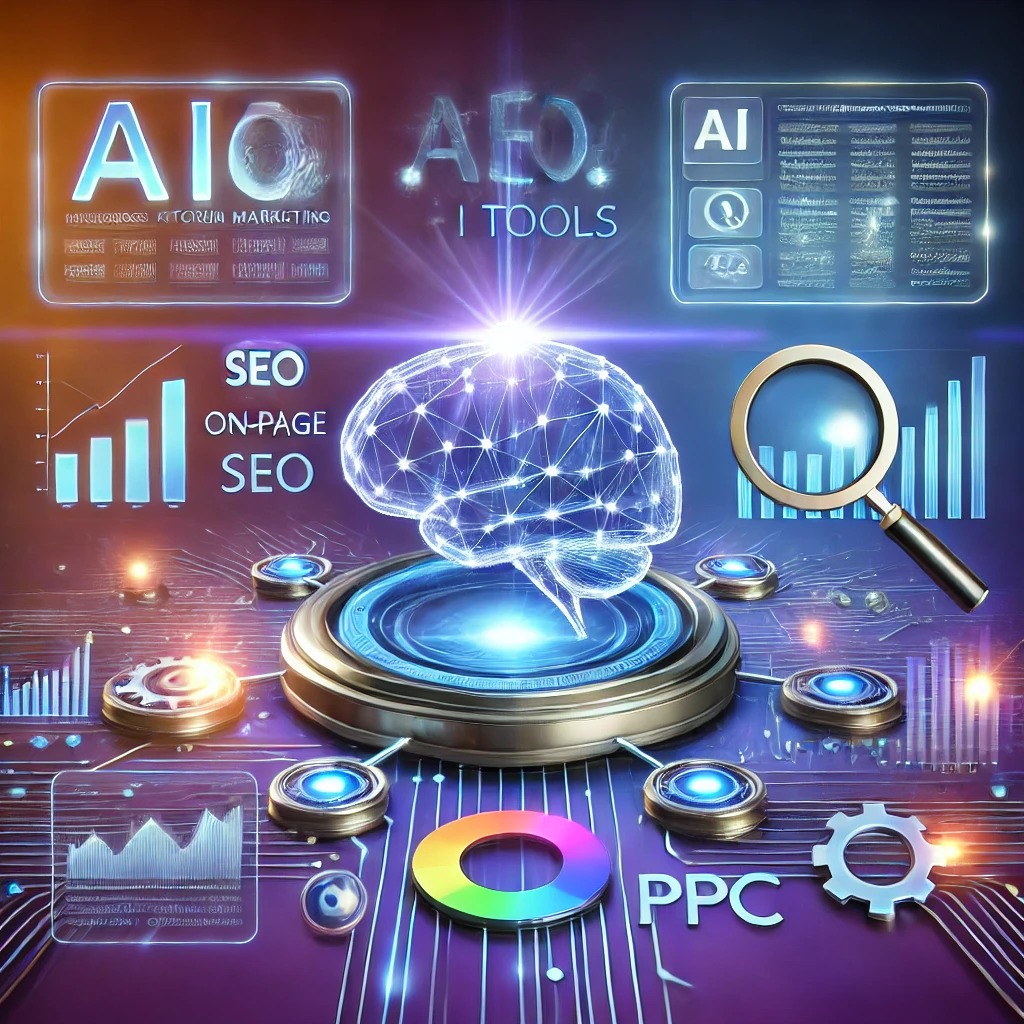
Introduction
In today’s digital marketing landscape, AI-powered tools have become essential for enhancing on-page SEO. From optimizing content to analyzing keywords, AI can streamline SEO processes and boost search engine rankings. Let’s explore how AI can help you improve on-page SEO effectively.
1. AI-Powered Keyword Research for SEO
AI tools analyze search trends and competitor strategies to provide valuable keyword insights. They help identify high-traffic keywords, including long-tail keywords that drive targeted traffic.
- Example Tools: SEMrush, Ahrefs, Ubersuggest
- Focus on keywords such as digital marketing, SEO, and PPC to maximize search visibility.
- Use tools to track keyword performance and optimize pages accordingly.
Explore expert digital marketing services at RankUpar to improve your SEO strategies.
2. Content Optimization with AI Tools
AI tools such as SurferSEO and Clearscope help analyze top-ranking content and provide recommendations for on-page optimization.
- Keyword Density: Ensure primary keywords such as SEO, digital marketing, and PPC appear naturally within your content.
- Content Gaps: Identify and fill gaps to cover topics thoroughly.
External Resource: Learn more from Moz’s Content Optimization Guide.
3. Enhancing Meta Tags and Descriptions with AI
AI tools can generate optimized title tags and meta descriptions to improve click-through rates (CTR).
- Use tools like Copy.ai or Jasper for creative, SEO-friendly titles and descriptions.
- Include keywords: SEO, digital marketing, and PPC in meta tags for better ranking.
4. Improving User Experience with AI Tools
AI-powered heatmaps and analytics (e.g., Hotjar) help understand user behavior, enabling better page structure for increased engagement and conversions.
- Optimize loading speed and mobile responsiveness.
- Use internal linking strategies to guide users effectively.
Discover PPC services at RankUpAR to drive paid traffic alongside your SEO efforts.
5. Automating Technical SEO with AI
AI tools like Screaming Frog and Sitebulb help detect technical issues such as broken links, duplicate content, and missing alt tags.
- Use AI to monitor website health and maintain optimal SEO performance.
6. AI-Driven Link Building Strategies
AI tools can identify high-authority websites for backlinks and outreach opportunities.
- Develop partnerships through content collaborations and guest posts.
- Build internal links to related services on your website.
Conclusion
AI tools are transforming on-page SEO by automating tasks, optimizing content, and providing actionable insights. Incorporating AI into your digital marketing and SEO strategy will help you stay ahead in search rankings and drive more traffic. Combine these AI techniques with expert services from RankUpar for comprehensive SEO solutions.
Master Digital Marketing Like a Pro in 2025
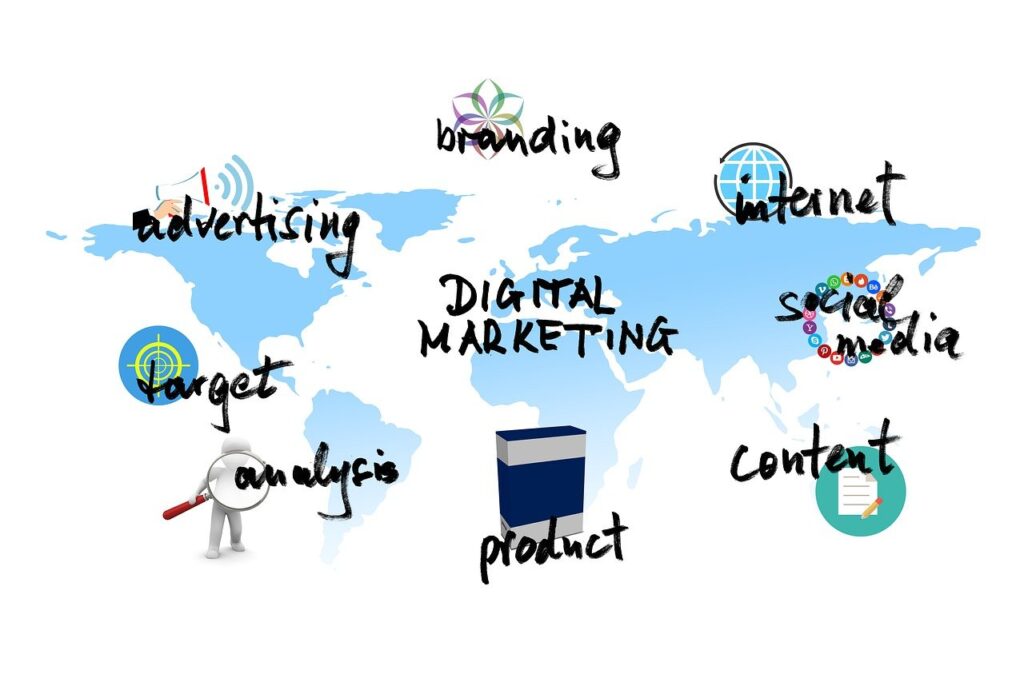
Introduction
Digital marketing is no longer a buzzword—it’s a necessity. With businesses increasingly moving online, mastering digital marketing is crucial for growth and sustainability. Whether you’re a business owner, a marketing professional, or an aspiring digital marketer, this guide will help you navigate the digital marketing landscape like a pro.
What is Digital Marketing?
Digital marketing encompasses all marketing efforts that use the internet or electronic devices. Businesses leverage digital channels such as search engines, social media, email, and websites to connect with current and prospective customers.
Key Components of Digital Marketing
Search Engine Optimization (SEO)
- SEO is the practice of optimizing your website to rank higher in search engine results.
Key SEO strategies include:
- Keyword research
- On-page SEO (content, headers, meta descriptions)
- Off-page SEO (backlinks, social signals)
- Technical SEO (site speed, mobile-friendliness)
Check our SEO services to boost your rankings.
Content Marketing
- Creating and distributing valuable content to attract and retain a clearly defined audience.
Types of content include:
- Blog posts
- Videos
- Infographics
- E-books
Social Media Marketing
- Promoting your brand and content on social media channels to increase brand awareness, drive traffic, and generate leads.
Email Marketing
- Sending personalized emails to nurture leads and convert them into customers.
Pay-Per-Click (PPC) Advertising
A method of driving traffic to your website by paying a publisher every time your ad is clicked.
Why Digital Marketing is Essential in 2025
- Increased Online Presence: Over 5 billion people use the internet globally.
- Targeted Reach: Digital marketing allows precise targeting based on demographics, interests, and behavior.
- Cost-Effective: Compared to traditional marketing, digital marketing offers better ROI.
Discover how RankUpAR can elevate your business with digital marketing
Top Digital Marketing Strategies for 2025
Voice Search Optimization
- With smart speakers on the rise, optimizing for voice search is crucial.
Video Marketing
- Videos are more engaging and shareable than text.
AI and Automation
- Using AI for data analysis, chatbots, and personalized marketing.
- Collaborating with influencers to reach a broader audience.
Mobile-First Approach
- Ensuring your website is mobile-friendly is non-negotiable.
How to Master Digital Marketing Like a Pro
- Stay Updated: Digital marketing trends evolve rapidly.
- Invest in Tools: Tools like Google Analytics, SEMrush, and HubSpot can streamline your efforts.
- Continuous Learning: Take online courses, attend webinars, and read industry blogs.
Common Digital Marketing Mistakes to Avoid
- Ignoring SEO basics
- Not having a clear strategy
- Overlooking analytics
- Failing to engage with your audience
Conclusion
Mastering digital marketing requires continuous effort, but the rewards are worth it. By implementing the strategies discussed, you can enhance your online presence, attract more customers, and grow your business.
DeepSeek-V3 vs ChatGPT: Which AI Assistant is Right for You?
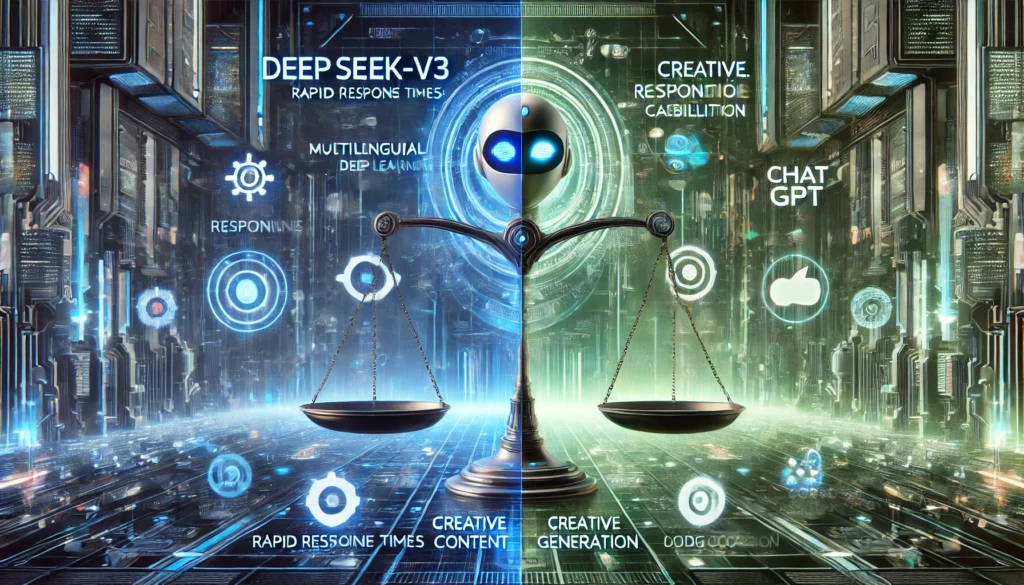
Introduction
DeepSeek-V3 vs ChatGPT – Artificial Intelligence has transformed how we interact with technology, making AI chatbots an essential part of daily life. In 2024, DeepSeek-V3 vs ChatGPT stand out as two of the most advanced AI-powered conversational models. But which one is better for your needs? This comprehensive guide compares their features, capabilities, performance, and limitations to help you make an informed decision.
What is DeepSeek-V3?
DeepSeek-V3 is a cutting-edge AI assistant developed to provide natural language processing (NLP), content generation, and real-time assistance. It leverages advanced machine learning techniques, including reinforcement learning, deep neural networks, and contextual analysis, to deliver human-like responses. DeepSeek-V3 vs ChatGPT comparisons often highlight its fast processing speed, multilingual capabilities, and enhanced reasoning abilities.
What is ChatGPT?
ChatGPT, developed by OpenAI, is one of the most widely used AI language models. It is based on the GPT-4 architecture, which enables it to understand complex queries, generate high-quality content, and engage in meaningful conversations. OpenAI has continually refined ChatGPT, making it one of the most versatile AI assistants in various industries, from customer support to content creation and coding assistance.
Key Features Comparison
Let’s dive into the key features of DeepSeek-V3 vs ChatGPT to see how they stack up against each other.
1. Natural Language Understanding (NLU)
- DeepSeek-V3: Offers advanced semantic understanding, contextual retention, and nuanced responses, making conversations feel more human-like.
- ChatGPT: Excels in understanding user intent, handling complex queries, and maintaining context over long conversations.
Winner: ChatGPT, due to its extensive training on a broader dataset and OpenAI’s continuous improvements.
2. Content Generation
- DeepSeek-V3: Strong in technical content generation, including research papers, reports, and data analysis.
- ChatGPT: Excels in creative writing, blog posts, marketing copy, and storytelling.
Winner: Depends on the use case – DeepSeek-V3 for technical content, ChatGPT for creative writing.
3. Coding and Programming Assistance
- DeepSeek-V3: Provides real-time code suggestions, debugging support, and multilingual programming assistance.
- ChatGPT: Supports a wide range of programming languages, offers step-by-step explanations, and helps with complex coding problems.
Winner: ChatGPT, due to its extensive coding knowledge and user-friendly explanations.
4. Multilingual Support
- DeepSeek-V3: Supports multiple languages with real-time translation capabilities.
- ChatGPT: Also supports various languages, but with better contextual understanding and idiomatic expressions.
Winner: DeepSeek-V3 for raw multilingual capabilities, ChatGPT for better translation accuracy and context.
5. Response Speed & Efficiency
- DeepSeek-V3: Known for faster response times and lower latency.
- ChatGPT: Can sometimes have slight delays, especially with longer queries.
Winner: DeepSeek-V3, if speed is your top priority.
6. AI Ethics & Safety
- DeepSeek-V3: Implements ethical AI safeguards but has had some concerns over content filtering.
- ChatGPT: OpenAI has invested heavily in AI safety measures, bias detection, and responsible AI usage.
Winner: ChatGPT, due to more comprehensive AI safety policies.
7. Pricing & Availability
DeepSeek-V3: Offers affordable plans, with a free tier that includes essential features.
ChatGPT: ChatGPT Plus and Enterprise plans provide premium access to advanced features.
Winner: DeepSeek-V3 for affordability, ChatGPT for value-packed premium features.
Real-World Use Cases
Who Should Use DeepSeek-V3?
✅ Researchers and analysts requiring technical content generation
✅ Businesses needing fast and cost-effective AI support
✅ Users looking for quick multilingual translations
Who Should Use ChatGPT?
✅ Content creators, bloggers, and marketers for high-quality written content
✅ Developers and coders seeking in-depth programming assistance
✅ Businesses and professionals requiring AI-driven customer support
User Experience & Feedback
User feedback plays a crucial role in determining the effectiveness of AI assistants. Here’s what users have been saying:
🔹 DeepSeek-V3 Users: Appreciate its speed and multilingual abilities but some report occasional inaccuracies in responses.
🔹 ChatGPT Users: Love its engaging conversational abilities and contextual awareness, but some find it slower in response time compared to DeepSeek-V3.
Deep Learning and AI Training Differences
DeepSeek-V3 Training Data
DeepSeek-V3 has been trained on a mixture of public datasets, proprietary corporate information, and user interactions, allowing it to provide real-time insights across different domains.
ChatGPT Training Data
ChatGPT, powered by OpenAI, is trained on a massive dataset including books, academic papers, web pages, and proprietary sources, which allows it to have more diverse conversational abilities and contextual understanding.
Winner: ChatGPT – it has a wider range of training data and offers more refined responses.
The Future of AI Assistants
Both DeepSeek-V3 vs ChatGPT are continuously evolving, with regular updates and enhancements. Future improvements may include:
- More accurate real-time responses
- Improved AI-generated content with better personalization
- Enhanced multilingual processing
- Stronger AI ethics and safety protocols
- Integration with business applications and automation tools
Final Verdict: Which AI Assistant Should You Choose?
The choice between DeepSeek-V3 vs ChatGPT depends on your needs:
✅ If you want fast response times, affordable pricing, and multilingual support, go for DeepSeek-V3.
✅ If you prefer context-aware conversations, creative writing, and advanced AI capabilities, ChatGPT is your best bet.
Both AI assistants have their strengths, and as AI continues to evolve, we can expect even more powerful features and improvements in the future. No matter which one you choose, DeepSeek-V3 vs ChatGPT will continue to shape the way we interact with AI.
What’s Your Pick?
Have you tried DeepSeek-V3 or ChatGPT? Which AI assistant do you prefer and why? Drop your thoughts in the comments!
Take your content to the next level with our professional writing services. We craft SEO-optimized, engaging, and high-quality content tailored to your needs. Whether you need blogs, AI comparisons, or technical writing, we deliver excellence. Contact us today and let’s create content that stands out! 🚀
On-Page vs Off-Page SEO: How to Rank Higher in Search Engines

Introduction
Digital Marketing Services: On-Page vs Off-Page SEO
Digital marketing services rely heavily on search engine optimization (SEO) to ensuring your website ranks higher on search engines and attracts organic traffic. But did you know SEO is divided into two main categories: on-page SEO and off-page SEO? Understanding the difference is key to optimizing your website effectively. This guide will explore both strategies and their role in successful online marketing.
On-page SEO refers to all the strategies and techniques applied directly to your website to improve its ranking. It includes optimizing content, HTML source code, and website structure to ensure search engines understand and rank your site higher.
✅ Keyword Optimization – Using targeted keywords like digital marketing services, SEO solutions, and website optimization strategically in content and meta tags.
✅ High-Quality Content – Creating valuable, engaging, and keyword-rich content to enhance user experience.
✅ Meta Tags & Descriptions – Crafting compelling title tags and meta descriptions to boost click-through rates (CTR).
✅ URL Structure – Ensuring clean and SEO-friendly URLs for better search engine indexing.
✅ Internal Linking – Connecting relevant pages within your website to improve navigation and SEO rankings.
✅ Mobile Friendliness & Site Speed – Optimizing page speed and responsiveness for better user experience and ranking.
✅ Image Optimization – Compressing and tagging images with alt attributes for better SEO performance.
✅ Content Readability & Structure – Using proper headings, bullet points, and concise paragraphs for enhanced user experience.
Content is king when it comes to on-page SEO. Creating high-quality, informative, and keyword-optimized content is essential for better rankings. SEO-optimized blogs, articles, and landing pages contribute significantly to increasing search engine visibility and user engagement. A well-structured blog with relevant long-tail keywords, LSI (Latent Semantic Indexing) keywords, and optimized headlines can improve rankings and drive organic traffic.
Off-page SEO focuses on activities conducted outside your website to improve its authority and ranking. It helps search engines determine how others perceive your website’s trustworthiness and credibility.
✅ Backlink Building – Acquiring high-quality backlinks from authoritative websites to boost domain authority.
✅ Social Media Marketing – Leveraging social media platforms to increase brand visibility and website traffic.
✅ Guest Blogging – Writing high-quality guest posts on industry-related blogs to drive referral traffic and backlinks.
✅ Online Reputation Management – Managing online reviews and brand mentions to build credibility.
✅ Influencer Marketing – Collaborating with influencers in your niche to promote your website and content.
✅ Forum & Community Engagement – Participating in online discussions, answering queries, and sharing insights to create brand awareness.
✅ Podcasting & Video Marketing – Utilizing YouTube, podcasts, and webinars to enhance off-page presence and engagement.
Backlinks are one of the most important ranking factors in off-page SEO. High-quality backlinks from authoritative sites signal search engines that your website is credible. However, spammy or low-quality backlinks can harm SEO. Implementing a solid backlink-building strategy, such as guest posting, broken link building, and skyscraper techniques, can improve domain authority and rankings.
On-Page vs. Off-Page SEO: Key Differences
| Feature | On-Page SEO | Off-Page SEO |
|---|---|---|
| Focus | Optimizing website content & structure | Building external authority & credibility |
| Control | You have full control over optimizations | Relies on third-party sites and backlinks |
| Techniques | Keyword optimization, content quality, internal linking | Backlinking, social media, influencer marketing |
| Goal | Improve website relevance & user experience | Boost site authority & reputation |
A well-rounded SEO strategy requires both on-page SEO and off-page SEO to achieve sustainable online success. On-page optimization ensures your website is search-engine-friendly, while off-page efforts build credibility and authority. Combining both can enhance your search rankings, increase website traffic, and drive better conversions.
❌ Keyword Stuffing – Overusing keywords unnaturally in content.
❌ Ignoring Mobile Optimization – Websites must be mobile-friendly to rank well.
❌ Low-Quality Backlinks – Links from spammy or irrelevant sites can harm SEO.
❌ Slow Website Speed – Poor loading times negatively impact rankings and user experience.
❌ Ignoring Technical SEO – Broken links, missing meta tags, and poor site structure can affect rankings.
Implementing SEO best practices can be overwhelming, but professional digital marketing services can simplify the process. Our expert team specializes in:
🔹 SEO Optimization – Implementing effective on-page and off-page SEO strategies to improve rankings. 🔹 Content Marketing – Creating high-quality, keyword-rich content that attracts organic traffic. 🔹 PPC Advertising – Running targeted Google Ads and paid campaigns for instant traffic. 🔹 Web Development – Designing and optimizing fast, responsive, and SEO-friendly websites. 🔹 Social Media Management – Increasing brand awareness and engagement through social media platforms. 🔹 Technical SEO Audits – Identifying and fixing site issues for better search engine performance.
📈 Want to boost your online presence? Contact us today for top-tier digital marketing services! 🚀
Local SEO for Small Businesses: The Ultimate Guide to Market Domination
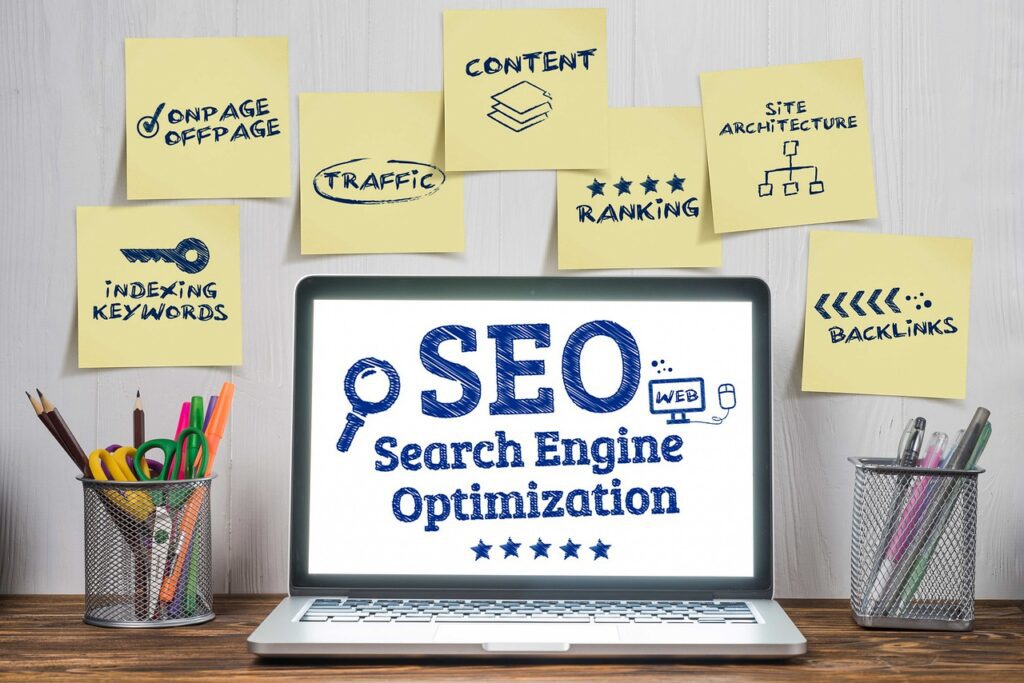
Introduction
In today’s digital world, small businesses must leverage every tool available to stand out in competitive markets. One of the most effective ways to gain visibility and attract local customers is through Local SEO (Search Engine Optimization). Whether you run a local restaurant, law firm, or retail store, optimizing your online presence can help you appear in search results when potential customers are looking for your services.
This comprehensive guide will explain how Local SEO works, why it’s essential for small businesses, and the best strategies to dominate your market.
What is Local SEO?
Local SEO is a branch of search engine optimization focused on improving a business’s visibility in local search results. When users search for businesses “near me” or in specific locations, Google prioritizes relevant local businesses. Unlike traditional SEO, which focuses on global rankings, Local SEO targets specific geographic areas to help businesses connect with nearby customers.
Some key factors influencing Local SEO rankings include: ✅ Google My Business (GMB) optimization ✅ Local citations and directory listings ✅ Online reviews and ratings ✅ Localized content and keywords ✅ Mobile-friendliness and website performance
Why is Local SEO Important for Small Businesses?
For small businesses, Local SEO is a game-changer. Here’s why:
1️⃣ Increased Visibility – Local SEO ensures your business appears at the top of search results when customers search for relevant products or services in your area.
2️⃣ Higher Website Traffic – Optimized local listings and keyword usage drive more targeted visitors to your website.
3️⃣ Better Customer Trust – Positive online reviews and an updated Google My Business profile establish credibility.
4️⃣ Cost-Effective Marketing – Compared to traditional advertising, Local SEO is budget-friendly and yields long-term results.
5️⃣ Competitive Advantage – Small businesses that invest in Local SEO outperform competitors who neglect online optimization.
Key Strategies to Improve Local SEO
1️⃣ Optimize Google My Business (GMB) Profile
Google My Business (GMB) is the foundation of Local SEO. Here’s how to optimize it: 🔹 Claim and verify your listing on Google. 🔹 Ensure business name, address, and phone number (NAP) are consistent across platforms. 🔹 Add business categories, descriptions, services, and attributes. 🔹 Upload high-quality images of your storefront, products, and team. 🔹 Encourage customers to leave reviews and respond to them promptly.
2️⃣ Use Local Keywords in Content
Integrating local keywords into your website helps search engines rank you for location-specific searches. For example: 🔹 Instead of “Best bakery,” use “Best bakery in New York City.” 🔹 Include local keywords in meta titles, descriptions, headings, and blog content. 🔹 Optimize for long-tail keywords like “affordable SEO services for small businesses in Chicago.”
3️⃣ Build Local Citations & Directory Listings
Local citations refer to mentions of your business on online directories, including:
✅ Yelp ✅ Yellow Pages ✅ Bing Places ✅ Apple Maps ✅ Industry-specific directories
Maintaining consistency in NAP (Name, Address, Phone Number) across these platforms strengthens your local search presence.
4️⃣ Encourage Online Reviews
Positive customer reviews enhance credibility and improve search rankings. Here’s how to generate more reviews: 🔹 Politely ask satisfied customers to leave feedback. 🔹 Provide incentives like discounts for honest reviews. 🔹 Respond to every review, whether positive or negative, to show engagement.
5️⃣ Create Localized Content
Publishing locally relevant content establishes authority in your niche. Some content ideas include: 🔹 Blog posts on local events or community involvement. 🔹 Case studies featuring happy local customers. 🔹 Guides related to your industry and region (e.g., “Top 10 Restaurants in Miami”).
6️⃣ Optimize for Mobile & Voice Search
More users search for businesses on mobile devices and through voice assistants. Ensure: ✅ Your website loads quickly and is mobile-friendly. ✅ You use natural language keywords that match voice searches (e.g., “Where can I find a plumber near me?”). ✅ Click-to-call buttons are easily accessible on mobile devices.
7️⃣ Leverage Social Media for Local Engagement
Engaging with your audience on social media platforms like Facebook, Instagram, and LinkedIn increases brand awareness. Effective strategies include: 🔹 Posting about local events, offers, and business updates. 🔹 Running geo-targeted ads. 🔹 Encouraging customers to tag your business in their posts.
Common Local SEO Mistakes to Avoid
🚫 Inconsistent Business Information – Ensure NAP details are uniform across all listings.
🚫 Ignoring Negative Reviews – Address negative feedback professionally to maintain trust.
🚫 Keyword Stuffing – Use natural keyword placements instead of overloading content with keywords.
🚫 Neglecting Mobile Optimization – Mobile-friendly websites rank higher in local searches.
🚫 Lack of Social Proof – Showcase customer testimonials and case studies to boost credibility.Common Local SEO Mistakes to Avoid
Final Thoughts: Why Your Business Needs Local SEO
Local SEO is a powerful marketing strategy for small businesses looking to dominate their markets. Whether you run a restaurant, medical practice, or retail store, investing in Local SEO can drive targeted leads, increase brand awareness, and improve conversion rates.
Are you ready to take your business to the next level? Our digital marketing services specialize in SEO optimization, website development, and local business growth strategies to help you succeed online. Contact us today to start your journey to higher rankings and more customers!
Boost Your Local Search Rankings Today! Contact us for expert SEO services tailored to your business needs.
Case Study – 01
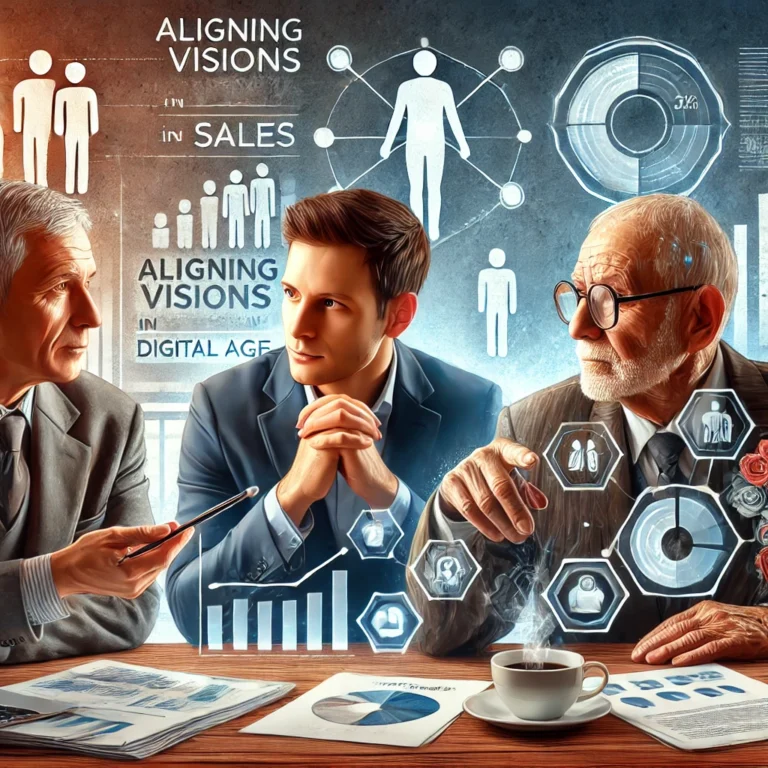
Digital Marketing Agency | Case Study
At [Your Agency Name], we take pride in delivering data-driven strategies that help businesses grow. As a leading digital marketing agency, we specialize in SEO, social media marketing, PPC, and content marketing to enhance brand visibility and maximize ROI. In this case study, we highlight how a traditional business successfully transitioned into the digital world with the help of our digital marketing agency. Many established companies struggle to adapt to the fast-paced digital landscape, but with the right strategy, they can unlock new growth opportunities.
Traditional Client in the Digital Space:
Let me walk you through an interesting situation I faced recently. A potential client reached out—an Ayurveda business owner with a strong 7-year offline presence. His father, the decision-maker at 92 years old, had no understanding of digital marketing but wanted to take their brand nationwide.
From the get-go, the focus was clear: “How many people will see and buy my product?” Despite my best efforts to explain the services and strategies, they were fixated on guaranteed sales figures. I explained multiple times how digital marketing works, the importance of building a brand, and how results depend on various factors like audience targeting and ad quality. But they weren’t ready to listen or understand, and it became apparent they weren’t interested in the process—just immediate numbers.
After trying 5–6 times to align our vision, I realized that continuing this discussion would likely lead to more frustration for both sides in the future. So, I made the tough call to let them go.
This situation reinforced an important lesson for me: not every client is the right fit. It’s okay to walk away when there’s a clear mismatch in expectations because, in the long run, misaligned goals can result in more challenges than results. It’s a real part of what we deal with as marketers.
Client Background
- Business Type: Ayurveda product sales with a 7-year offline presence.
- Decision Maker: A 92-year-old individual with limited digital knowledge.
- Primary Concern: “How many people will see and buy my product?”
- Challenges: Resistance to understanding digital marketing plans and fixating on immediate sales results.
Our Decision
After careful consideration, we decided to let the client go. The inability to align expectations indicated potential future challenges in communication and project success.
Key Takeaways
- Expectation Setting: Educate clients about realistic outcomes and the process of building a digital presence.
- Recognize Red Flags: Clients unwilling to adapt or understand digital methodologies may result in prolonged misunderstandings.
- Value Compatibility: Prioritize partnerships where goals and visions align to ensure mutual satisfaction.
This case underscores the importance of client education and the willingness to walk away from mismatched opportunities.
Transform Your Business with Digital Marketing
Taking a traditional business into the digital space requires a strategic approach, and our expertise ensures a smooth transition. Whether it’s SEO, social media marketing, or paid advertising, we tailor solutions to help businesses thrive online.
If you’re looking for expert guidance, explore our Digital Marketing Services to see how we can elevate your brand.
Let’s build your digital success story today! Contact us to get started.
Agency vs Freelancer: Which One is Right for Your Business
Introduction
In today's fast-paced digital world, businesses must evolve to keep up with the competition. Digital marketing has emerged as a powerful strategy that enables companies to reach their target audience, increase brand awareness, and drive sales. Whether you're a small business owner, entrepreneur, or large corporation, implementing the right digital marketing services can transform your online presence. This comprehensive guide will explain what digital marketing is, its core components, and how businesses can leverage it to achieve success. We'll also explore key elements like SEO (Search Engine Optimization), PPC (Pay-Per-Click), email marketing, and more to help you understand the potential of online marketing.
What is Digital Marketing?
Digital marketing refers to the use of online channels, platforms, and strategies to promote products or services to a targeted audience. Unlike traditional marketing methods, such as print ads and TV commercials, digital marketing leverages the power of the internet to engage with consumers in real time.
Key Benefits of Digital Marketing
- Cost-Effective: Digital marketing is often more affordable than traditional advertising methods.
- Targeted Approach: Businesses can reach their ideal customers through data-driven strategies.
- Measurable Results: Advanced analytics tools provide insights into campaign performance.
- Global Reach: Expand your brand’s presence beyond local boundaries.
- Enhanced Customer Engagement: Personalized marketing improves customer relationships and brand loyalty.
Key Components of Digital Marketing
1. Search Engine Optimization (SEO)
SEO is the process of optimizing a website to rank higher in search engine results pages (SERPs). The goal of SEO is to drive organic traffic and increase visibility for relevant search queries.
Types of SEO:
- On-Page SEO: Focuses on optimizing website content, title tags, meta descriptions, and keyword usage.
- Off-Page SEO: Involves link building, social media engagement, and influencer outreach.
- Technical SEO: Ensures the website is fast, mobile-friendly, and well-structured for search engine crawlers.
Effective SEO strategies help businesses appear on the first page of Google, leading to higher website traffic and conversion rates.

2. Pay-Per-Click Advertising (PPC)
PPC advertising is a model where businesses pay a fee each time their ad is clicked. It’s a highly effective way to drive instant traffic to a website.
Types of PPC Ads:
- Search Ads: Appear on search engine results pages (Google Ads, Bing Ads).
- Display Ads: Banner ads displayed across websites.
- Social Media Ads: Sponsored content on platforms like Facebook, Instagram, and LinkedIn.
- Video Ads: Ads on YouTube and other video platforms.
PPC campaigns, when combined with SEO, offer a balanced approach to online marketing.
3. Content Marketing
Content marketing focuses on creating and distributing valuable, relevant content to attract and engage a target audience.
Types of Content:
- Blog posts
- Infographics
- Videos
- E-books
- Webinars
High-quality content helps improve SEO, educates customers, and builds trust, positioning your business as an industry leader.
4. Email Marketing
Email marketing remains one of the most effective ways to nurture leads and retain customers.
Email Marketing Best Practices:
- Personalized email campaigns based on user behavior.
- Engaging subject lines and valuable content.
- A/B testing for optimizing email performance.
- Automated email sequences for lead nurturing.
- Email marketing, when integrated with other digital marketing services, strengthens customer relationships and drives repeat business.
5. Social Media Marketing
Social media platforms like Facebook, Instagram, Twitter, and LinkedIn offer businesses an opportunity to engage with their audience directly.
Key Strategies for Social Media Marketing:
- Consistent posting and engagement.
- Influencer partnerships.
- Paid advertising campaigns.
- Social media contests and promotions.
A strong social media presence increases brand awareness and drives traffic to your website.
Affiliate marketing is a performance-based strategy where businesses reward affiliates (partners) for driving traffic or sales through their referral links.
Benefits of Affiliate Marketing:
- Low-risk investment with a high return.
- Increased brand reach through affiliate networks.
- Cost-effective way to scale digital marketing efforts.
7. Online Reputation Management (ORM)
Maintaining a positive online reputation is crucial for businesses. ORM involves monitoring and managing online reviews, responding to customer feedback, and building a strong brand presence.
Best Practices for ORM:
- Encourage satisfied customers to leave positive reviews.
- Address negative feedback professionally.
- Monitor brand mentions and engage with customers proactively.
How to Create a Successful Digital Marketing Strategy
Step 1: Define Your Goals
Clearly outline what you want to achieve with your digital marketing efforts (e.g., brand awareness, lead generation, sales growth).
Step 2: Identify Your Target Audience
Understand your ideal customer profile and their preferences.
Step 3: Choose the Right Digital Marketing Services
Combine SEO, PPC, email marketing, social media marketing, and other strategies to maximize results.
Step 4: Create High-Quality Content
Develop engaging and valuable content that resonates with your audience.
Step 5: Monitor and Optimize Performance
Use analytics tools to track performance, measure ROI, and refine strategies for better results.
The Future of Digital Marketing
The digital landscape is constantly evolving. Emerging trends such as artificial intelligence (AI), voice search, and interactive content are shaping the future of digital marketing. Businesses that adapt to these changes will stay ahead of the competition and continue to grow.
Final Thoughts
Digital marketing is an essential component of modern business success. Whether you’re a startup or an established company, investing in digital marketing services like SEO, PPC, email marketing, and social media marketing can drive significant growth.
🚀 Are you ready to take your business to the next level? Our expert digital marketing services can help you create a customized strategy that delivers real results. Contact us today and let’s grow your online presence together!
📢 Boost Your Online Presence Today! Get in touch for top-notch SEO, PPC, and email marketing solutions tailored to your business needs.
